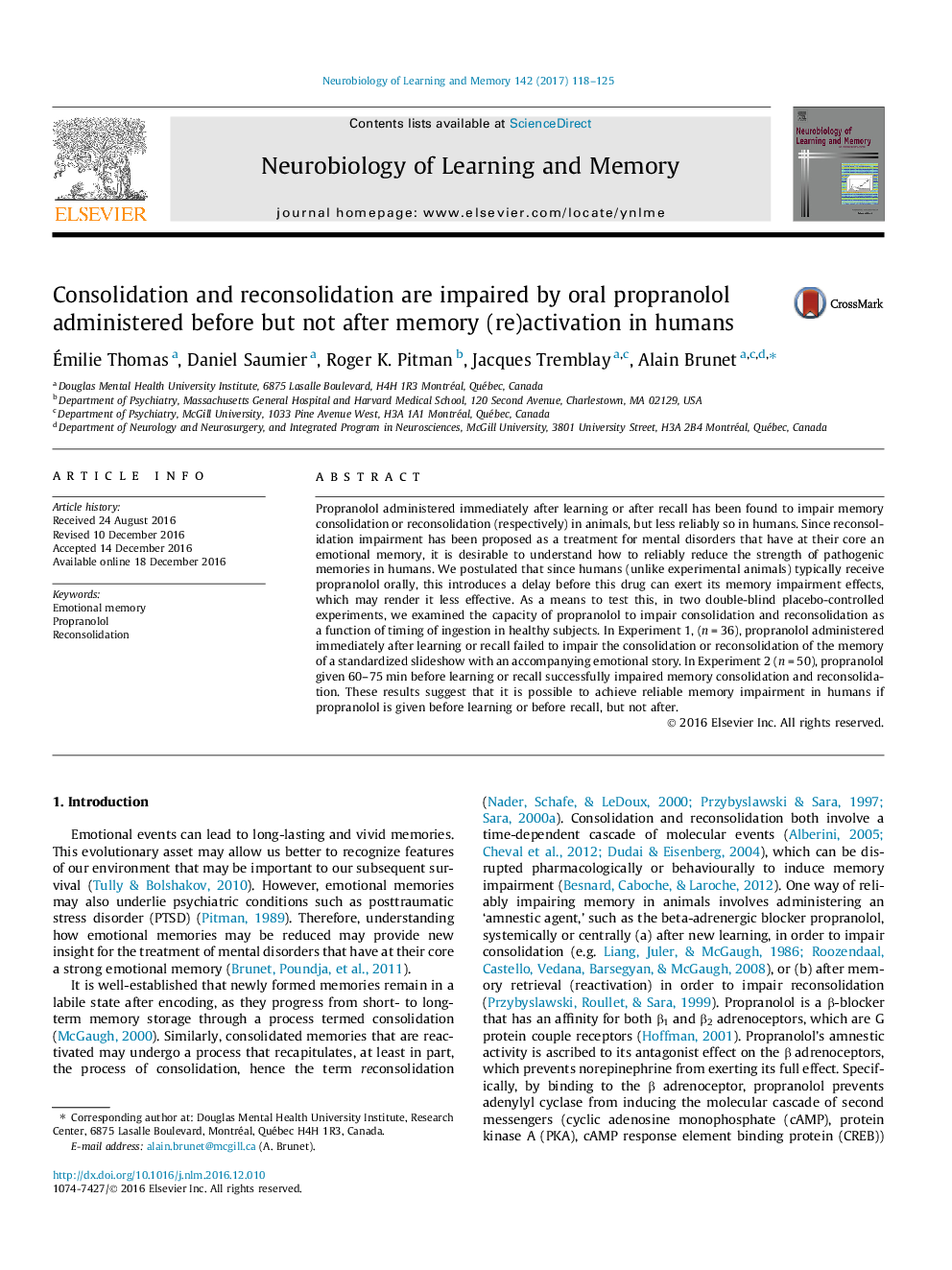| Article ID | Journal | Published Year | Pages | File Type |
|---|---|---|---|---|
| 5043225 | Neurobiology of Learning and Memory | 2017 | 8 Pages |
â¢Propranolol given after the retrieval of an emotional story does not impair its reconsolidation.â¢Propranolol given before the retrieval of an emotional story impairs its reconsolidation.â¢Propranolol impairs more reliably emotional than non-emotional memory.
Propranolol administered immediately after learning or after recall has been found to impair memory consolidation or reconsolidation (respectively) in animals, but less reliably so in humans. Since reconsolidation impairment has been proposed as a treatment for mental disorders that have at their core an emotional memory, it is desirable to understand how to reliably reduce the strength of pathogenic memories in humans. We postulated that since humans (unlike experimental animals) typically receive propranolol orally, this introduces a delay before this drug can exert its memory impairment effects, which may render it less effective. As a means to test this, in two double-blind placebo-controlled experiments, we examined the capacity of propranolol to impair consolidation and reconsolidation as a function of timing of ingestion in healthy subjects. In Experiment 1, (n = 36), propranolol administered immediately after learning or recall failed to impair the consolidation or reconsolidation of the memory of a standardized slideshow with an accompanying emotional story. In Experiment 2 (n = 50), propranolol given 60-75 min before learning or recall successfully impaired memory consolidation and reconsolidation. These results suggest that it is possible to achieve reliable memory impairment in humans if propranolol is given before learning or before recall, but not after.
